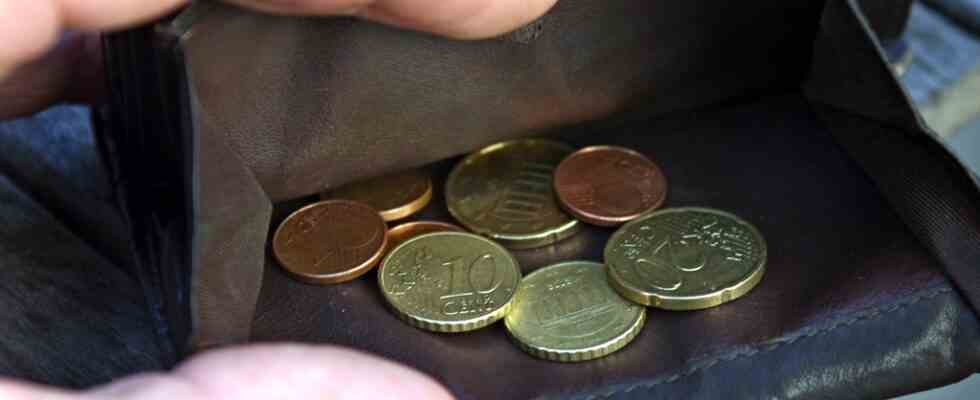Status: 07/24/2022 3:22 p.m
Price explosion everywhere – the Germans are therefore restricting themselves: on vacation, when shopping and when it comes to mobility. At the same time, energy consultants are experiencing a boom in orders.
“When there is still a lot of month left at the end of the month”: This is exactly what more and more Germans are experiencing. The inflation rate of more than seven percent means that the money in the account is running out faster than in the past. If you don’t want to slip into the red, you have to change your behavior and save.
Rising prices – how people in Germany are changing
Naïma Kunze, HR, plus minus 9:45 p.m., 20.7.2022
Potential savings in mobility
This is exactly what Marika da Silva from Hattersheim in Hesse does. Her partner now uses public transport, so she can use his car. She rents out her own via an app. “That brings me in 90 euros a month and helps a little with the expensive fuel,” says the young woman. Saving on mobility is the trend: Almost 60 percent of Germans with a household income of less than 2,000 euros net per month limit themselves in this area, according to the results of a current survey by the Hans Böckler Foundation, which is close to the trade union.
What applies to everyday life, the Germans also do when planning their holidays – and to do this they turn several screws: According to a new survey by the management consultancy PwC, more than half (56 percent) want to reduce the number of trips due to high inflation. Half of Germans want to shorten their vacation, and 73 percent do not want to fly on vacation because of the price increase.
Insulate more, heat less
The higher energy prices bring a veritable order boom to an industry: Energy consultant Jonas Pischner is in demand in Baden-Württemberg. “When the energy prices shoot up, the savings potential also increases,” Pischner makes clear. Dominik Wolf from Horb is happy about the practical savings tips: You can quickly attach an insulating aluminum mat between the radiator and the outside wall and minimize heat loss over the long term.
Even electronic or smart radiator thermostats can usually be installed by a layman himself, explains energy consultant Pischner. Once you have found out with a sheet of paper that there is a gap between the window and the frame, you will find the right insulating material in every hardware store. Large investments in the old house are not possible for Wolf. “All the better if I can do something against the rising costs with such little things myself.”
price instead of taste
The high inflation has long since arrived when shopping in the supermarket. According to a recent survey commissioned by the food industry, 90 percent of Germans expect prices to continue to rise. And that has consequences: At the top is the cheaper purchase (57 percent), every third person wants to shop more specifically with a written shopping list and thus save money. In addition, the priorities have shifted compared to previous surveys: for a good 67 percent, the price is now the decisive factor, while taste is the decisive criterion for only 44 percent. Taste was still the top priority in the Federal Ministry’s current nutrition report – that’s how it always was before prices exploded.
The new development worries Professor Sebastian Dullien. The scientific director at the trade union-affiliated IMK knows that the ubiquitous price increase hits low-income households particularly hard. Because this group has to spend a larger part of the money on food. “I can well imagine that people would then eat less well and skip hot meals,” says the scientist. This could lead to health problems in the long run.
Reduce price increases, not offset them
Fortunately, Marika da Silva and her family don’t have to limit themselves that much. But she too now relies on more intensive price comparisons and the good old shopping list for groceries. At the same time, it is clear to her: despite all her efforts to save, she can reduce the consequences of the price increase, but not completely offset it. The price increases are just too extreme for that.

